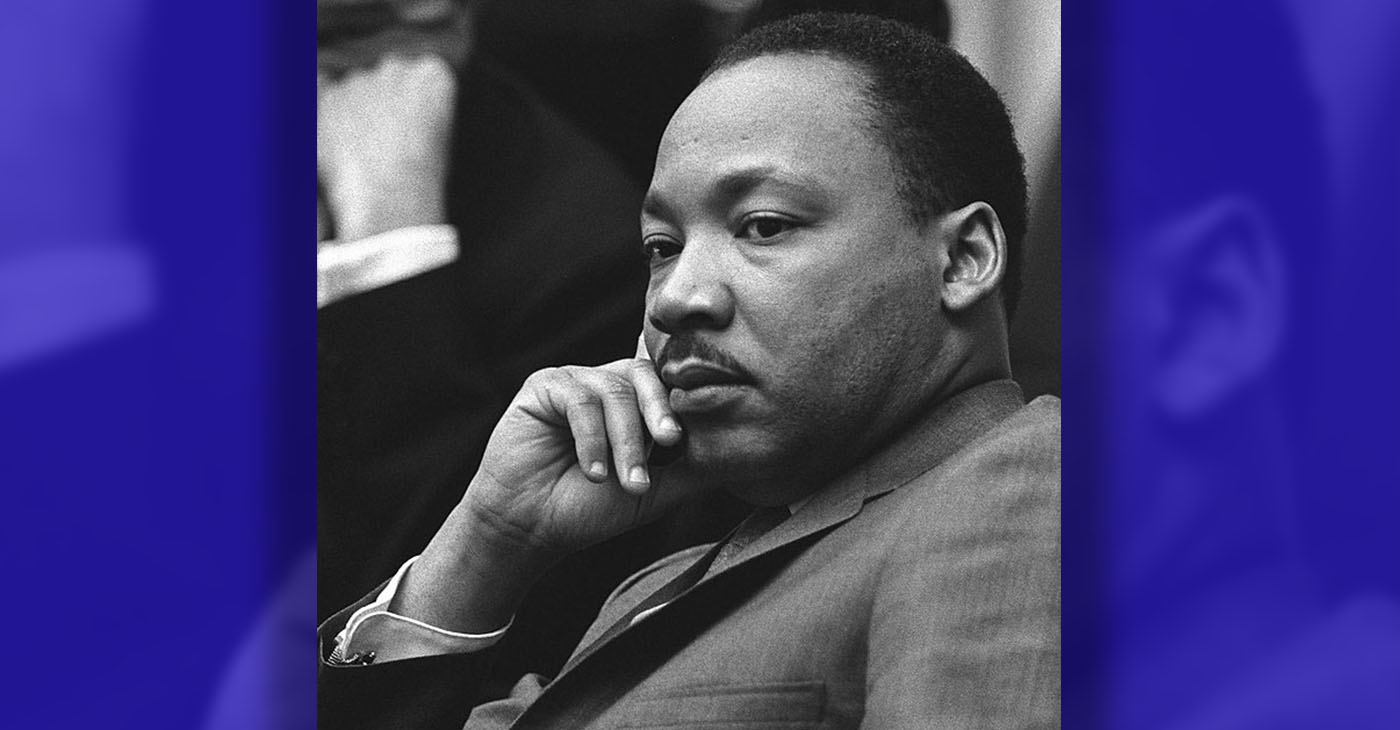#NNPA BlackPress
The Impact of COVID-19 on HBCUs and Black Students
NNPA NEWSWIRE — In March 2020, when college campuses across the country closed and sent students home, many HBCUs continued to house hundreds of students who did not have homes to return to. Groups of students were stuck on campus without the funds to pay for transportation back to their home cities. This challenge was a byproduct of several students losing the jobs they used to help fund their education, along with loss of family income. Many students became both food and housing insecure without the critical resources that HBCUs often provide.
The post The Impact of COVID-19 on HBCUs and Black Students first appeared on BlackPressUSA.

The COVID-19 pandemic has brought the inequities faced by Black Americans into sharp focus
By Dr. Harry L. Williams, President and CEO of Thurgood Marshall College Fund (TMCF)
While the world has been focused on the growing numbers of COVID-19 causalities, the media has somewhat ignored the long-term educational and economic impacts of the pandemic – especially for Black students. Although there has been some attention given to the disparities between Black Americans and other groups contracting the virus, it is not an exaggeration to say that the Black community will be recovering from the impact of COVID-19, health wise, economically, and educationally for at least the next two decades.
Throughout the pandemic, Historically Black Colleges and Universities (HBCUs) have been on the front lines addressing the impact the pandemic has had on students, faculty, staff and surrounding communities. In March 2020, when college campuses across the country closed and sent students home, many HBCUs continued to house hundreds of students who did not have homes to return to. Groups of students were stuck on campus without the funds to pay for transportation back to their home cities. This challenge was a byproduct of several students losing the jobs they used to help fund their education, along with loss of family income. Many students became both food and housing insecure without the critical resources that HBCUs often provide.
The Thurgood Marshall College Fund (TMCF) worked with our member-schools—America’s 47 publicly-supported HBCUs—and many of their corporate partners to help secure access to needed support for students. Beyond academic scholarships, TMCF stepped up to help provide grants for students, assisting them with rent, groceries, and transportation. At one HBCU, more than half of the students and faculty did not have the adequate computer hardware or broadband internet access to participate in remote classes. Corporate partners supported the purchasing of laptops and hotspots for both students and faculty to facilitate the pivot to online learning.
Despite their long history and accolades, HBCUs as a collective have continued to struggle with proper funding, receiving less per-student aid from their states, along with less research funding from the federal government. These institutions are highly tuition dependent, which can cause a great challenge anytime enrollment numbers are compromised. Closing campuses and sending students home meant that many schools had to return housing funds that traditionally would have supported the university’s operations. Recognizing the great infringement that the pandemic placed on the schools, we shifted part of our focus of providing scholarships and career readiness opportunities to work with HBCUs to provide support restructuring their finances, securing new resources, and planning for the 2020-21 and 2021-22 academic years.
Part of the shift also included engaging corporate partners to help find new and creative ways to help students succeed in this environment. For example, McDonald’s expanded their partnership with TMCF in 2020 to provide additional scholarships beyond their original commitment for HBCU students. This commitment extended in 2021 to support students who overwhelming were high-achieving performers but came from low-income backgrounds and needed the extra support during this unprecedented time. As a non-profit committed to the advancement of Black students, we understand that the best way to address disparities is to invest in students so they can persist in their studies, graduate, and progress to economically sustainable careers.
We also partnered with our member-schools to provide enhanced mental health resources to help students address the emotional needs that may have emerged as a result of the changing landscape of the world. Among other amenities, TMCF scholars were offered access to Shine, a minority-owned mobile app which offers self-care resources to better manage mental health challenges like stress and anxiety.
The resilience of Black students in the face of the pandemic further illustrates the importance of HBCUs for engaging the Black community. Though the pandemic has presented extraordinary challenges in the last two years, HBCUs have emerged even stronger. While many colleges had steep drops in enrollment during the pandemic, HBCUs experienced the exact opposite. Many of the country’s largest HBCUs are seeing record numbers of applications. The COVID-19 crisis inspired a new approach to working together as a network and building new capabilities in online learning, student retention and attraction, and more. This has only strengthened HBCUs’ unique position to help fill the social and economic gaps Black Americans experience, given these institutions’ assets, experience, and cultural and historical significance.
As a legacy corporate partner, McDonald’s stepped up to support HBCU students because of their longstanding commitment to supporting the Black community and empowering the next generation by creating opportunity through educational initiatives. Today, we call on other major corporations to do the same – address inequities by investing in diverse students, who are posed to be the next generation of changemakers. Their journey to leadership starts with a college degree, and with the proper resources that degree can come from an HBCU.
Dr. Harry L. Williams is the President and CEO of Thurgood Marshall College Fund (TMCF), the largest organization exclusively representing the Black College Community.
The post The Impact of COVID-19 on HBCUs and Black Students first appeared on BlackPressUSA.
#NNPA BlackPress
Lawmakers Greenlight Reparations Study for Descendants of Enslaved Marylanders
BLACKPRESSUSA NEWSWIRE — Maryland lawmakers have approved Senate Bill 587, authorizing the creation of the Maryland Reparations Commission.

By Stacy M. Brown
BlackPressUSA.com Senior National Correspondent
Maryland lawmakers have approved Senate Bill 587, authorizing the creation of the Maryland Reparations Commission. The body will study and make recommendations for reparations to descendants of enslaved people and others harmed by centuries of discriminatory policies. The legislation now awaits the governor’s signature and is scheduled to take effect July 1, 2025. The commission will examine Maryland’s long history of slavery, the economic and social systems that benefited from it, and the lingering impacts of those institutions. Its work will include recommendations on financial compensation, housing and business support, tuition waivers, and other forms of restitution. “This commission is not only about acknowledging our past – it’s about using that understanding to pave the way for a more equitable and fair future,” said Del. Jheanelle Wilkins, Chair of the Legislative Black Caucus of Maryland, which made reparations a top priority for the first time this legislative session.
From its founding in 1634 until the abolition of slavery in 1864, Maryland was a society built on slave labor. Tobacco, the colony’s staple crop, fueled economic growth and political dominance for the state’s elite. By the mid-18th century, nearly one-third of Maryland’s population was enslaved. Skilled and unskilled laborers like Frederick Douglass, who caulked ships in Baltimore, contributed to the state’s prosperity under brutal conditions. The legacy of that bondage continued to echo across generations. Del. Aletheia McCaskill, the lead sponsor of the House version of the bill, said the measure lays the groundwork for redress. “I am overjoyed at the passage of this monumental legislation,” McCaskill said. “This commission will gather historical evidence, examine present-day disparities, and provide a data-driven framework to acknowledge past harms. By recommending policies and developing solutions to repair the damage done, we can take meaningful steps toward true equity in our state.”
Sen. C. Anthony Muse, sponsor of the Senate version, called the passage historic. “We took a historic step towards justice and healing for our communities,” Muse remarked. “The passage of Maryland Senate Bill 587 marks a significant commitment to addressing the long-lasting effects of slavery and systemic inequities.” The commission’s membership will include lawmakers, historians, HBCU scholars, civil rights experts, representatives from the NAACP and the Maryland Black Chamber of Commerce, and members of the public. It will examine reparations programs in other states and recommend procedures for verifying eligibility and the feasibility of funding and distributing reparations. Maryland’s history makes it a powerful setting for this initiative. The state witnessed the forced transport of nearly 100,000 Africans during the 18th century. The rise of tobacco plantations led to a devastating regime marked by family separation, disease, forced labor, and systemic brutality. Enslaved individuals in Maryland built canals, smelted iron, and helped fuel the economic engine of the state while living under constant threat of sale or violence. The stories of individuals like Hillery Kane at Sotterley Plantation and Lucy Jackson at Hampton Mansion reveal not only the cruelty of slavery but also the resilience and resistance of the enslaved.
By the 19th century, Maryland became a central player in the domestic slave trade, with an estimated 20,000 people sold to cotton plantations in the Deep South between 1830 and 1860. Even after emancipation in 1864, freed Black Marylanders faced decades of disenfranchisement, segregation, and economic exclusion. “This is about more than history,” Wilkins said. “It’s about how that history has shaped the realities of today.” The commission will submit a preliminary report by January 1, 2027, and a final report by November 1, 2027. It will explore possible sources of funding, such as businesses and institutions that benefited from slavery and discriminatory government practices.
Opposition to the bill has centered mainly on its cost, but the fiscal note details only a modest increase of $54,500 in 2026 to fund contractual staff. No reparations payments are authorized under the current bill. Maryland is joining California, Colorado, Illinois, Massachusetts, and New York in forming a reparations commission. The move comes as diversity, equity, and inclusion initiatives face increasing national scrutiny and political attacks. Still, supporters of the commission insist the time for reckoning is now. “We’re not just commemorating the past,” McCaskill said. “We are charting a course toward justice, informed by our truth and grounded in our responsibility to future generations.”
#NNPA BlackPress
Harris, Obama, and Booker Step Up as Resistance Against Trump Takes Shape
BLACKPRESSUSA NEWSWIRE — Obama, meanwhile, broke his silence during an appearance at Hamilton College in New York, offering one of his sharpest public critiques yet of Trump’s second administration.

By Stacy M. Brown
BlackPressUSA.com Senior National Correspondent
Is the resistance finally taking form?
As Kendrick Lamar asked during his powerful Super Bowl performance, “Are we really about to do it?” That question now echoes in the political arena as former President Barack Obama and former Vice President Kamala Harris have entered the public fray, joining voices like New Jersey Sen. Cory Booker and Texas Rep. Jasmine Crockett in confronting President Donald Trump and his administration’s sweeping changes head-on. After months of relative silence following her defeat to Trump last November, Harris returned to the spotlight Thursday during a rare appearance at the Leading Women Defined conference at a seaside resort in Dana Point, California. According to The Los Angeles Times, she didn’t mention Trump by name but spoke forcefully about the anxiety many Americans are experiencing under his new administration.
“There is a sense of fear that is taking hold in our country, and I understand it,” Harris said. “These are the things that we are witnessing each day in these last few months in our country, and it understandably creates a great sense of fear. Because, you know, there were many things that we knew would happen, many things.” “I’m not here to say, ‘I told you so,’” she continued. “I swore I wasn’t going to say that.” The appearance marked a shift in tone for Harris, who has been weighing a potential run for governor of California in 2026 or waiting until 2028 for another shot at the presidency. Still, she clarified that her political silence hasn’t equated to surrender. “We can’t go out there and do battle if we don’t take care of ourselves and each other,” Harris told the crowd. “I’ll see you out there. I’m not going anywhere.”
Obama, meanwhile, broke his silence during an appearance at Hamilton College in New York, offering one of his sharpest public critiques yet of Trump’s second administration. He condemned Trump’s attempts to reshape the federal government, stifle dissent, and punish those who oppose his policies. “So, this is the first time I’ve been speaking publicly for a while,” Obama said. “I’ve been watching for a little bit.” “Imagine if I had done any of this,” Obama added. “It’s unimaginable that the same parties that are silent now would have tolerated behavior like that from me or a whole bunch of my predecessors.” While calling Trump’s proposed tariffs bad for America, Obama said his larger concern lies with what he described as the White House’s alarming overreach.
“I’m more deeply concerned with a federal government that threatens universities if they don’t give up students who are exercising their right to free speech,” he said. “The idea that a White House can say to law firms, if you represent parties that we don’t like, we’re going to pull all our business or bar you from representing people effectively. That kind of behavior is contrary to the basic compact we have as Americans.” Obama, who campaigned for Harris during the final stretch of the 2024 election, had warned that a second Trump term would endanger the nation’s democratic norms. “Just because [Trump] acts goofy,” Obama said at the time, “doesn’t mean his presidency wouldn’t be dangerous.” With Trump’s second term underway, the voices of resistance are growing louder.
Sen. Cory Booker added fuel to the movement by making history on the Senate floor. He delivered a 25-hour, 5-minute filibuster that broke the record previously held by segregationist Sen. Strom Thurmond. Thurmond’s 1957 filibuster—lasting 24 hours and 18 minutes—was aimed at blocking the Civil Rights Act. Booker used his record-breaking speech to denounce what he called a deliberate dismantling of government at the hands of Trump, Elon Musk, and Congressional Republicans. “It always seemed wrong,” Booker said, referring to the Senate room still named after Thurmond. “It seemed wrong to me when I got here in 2013. It still seems wrong today.”
The New Jersey senator, a descendant of both enslaved people and slave owners, framed his marathon speech as a moral plea, reading letters from Americans affected by deep cuts and policy threats to Medicare, Medicaid, Social Security, and SNAP. “This is a moral moment,” Booker declared. “It’s not left or right; it’s right or wrong.” With Booker’s record-setting stand, Harris’s reemergence, and Obama’s warning shots, what once felt like fragmented frustration among Democrats may now be coalescing into something more deliberate: a resistance that is finally, visibly, on the move. “I’ll see you out there,” Harris said. “I’m not going anywhere.”
#NNPA BlackPress
Dr. King and the Reason He Protested on His Assassination Anniversary
BLACKPRESSUSA NEWSWIRE — King was in Memphis to support striking African-American sanitation workers upset over poor working conditions and low pay. At his death, King also organized the Poor People’s Campaign to address poverty and economic inequality.

By April Ryan
The Media Panel at the National Action Network Convention in the NYC
“What would Martin do?” asked Mary Francis Berry, the former head of the U.S. Commission on Civil Rights. Berry was a college student when the news reports were delivered that Dr King was assassinated. More than half a century ago today, Dr. Martin Luther King Jr. was fatally shot on the balcony of the Lorraine Motel in Memphis, Tennessee. King was in Memphis to support striking African-American sanitation workers upset over poor working conditions and low pay. At his death, King also organized the Poor People’s Campaign to address poverty and economic inequality. Almost 60 years later, African Americans are withholding their dollars from companies like Target that have rolled back Diversity, Equity, and Inclusion programs. Target’s stock has dropped drastically, and it is reported that the company has lost billions of dollars from this action. On a related note, the National Urban League says that Black America’s buying power is close to $2 trillion. Major rallies around the nation, the majority of which are white-led, are protesting a new rollback in rights and freedoms created by the Trump agenda.
Thursday, in New York City, at the National Action Network convention during the media panel, the crowd in the packed ballroom stood to their feet, pumping their fists and shouting, “he’s a racist, “directing their ire at President Donald Trump. Freedom to protest in this country during difficult times is a blueprint Dr. Martin Luther King Jr. and his lieutenants left during the civil rights era. Berry remembers consulting with Dr. King’s widow, Coretta Scott King, and wondering what the civil rights icon would do whenever they started a protest like the “Free South Africa” movement and protests against the “unfair treatment of Haitians” and the “LGBTQ+ people and whatever.” The “checklist” of items to confirm this is what Dr. King would support is included in his book Where Do We Go From Here? The questions are: “Is it safe? Is it political? Is it popular? Is it right?” Protests and boycotts abound in this nation, and a significant protest is slated for this Saturday in Washington, D.C. 1000,000 people are expected to show up and protest against the MAGA and Project 2025 agenda Donald Trump follows. Berry reminds us that Dr. King supported peaceful protests and economic boycotts. At age 26, King led a nonviolent protest against segregated bus seating in Montgomery, Alabama, a pivotal event in the civil rights movement.
-

 Activism2 weeks ago
Activism2 weeks agoWe Fought on Opposite Sides of the Sheng Thao Recall. Here’s Why We’re Uniting Behind Barbara Lee for Oakland Mayor
-

 Activism4 weeks ago
Activism4 weeks agoOakland Post: Week of March 5 – 11, 2025
-

 #NNPA BlackPress2 weeks ago
#NNPA BlackPress2 weeks agoRev. Dr. Jamal Bryant’s Black Church Target Boycott Mobilizes 150,000
-

 Activism3 weeks ago
Activism3 weeks agoSan Francisco Is Investing Millions to Address Food Insecurity. Is Oakland Doing the Same?
-

 #NNPA BlackPress4 weeks ago
#NNPA BlackPress4 weeks agoFighting to Keep Blackness
-

 #NNPA BlackPress2 weeks ago
#NNPA BlackPress2 weeks agoRecently Approved Budget Plan Favors Wealthy, Slashes Aid to Low-Income Americans
-

 Activism2 weeks ago
Activism2 weeks agoFaith Leaders Back Barbara Lee for Mayor, Criticize Candidate Loren Taylor for Dishonest Campaigning
-

 Activism3 weeks ago
Activism3 weeks agoOakland Post: Week of March 12 – 18, 2025

















































